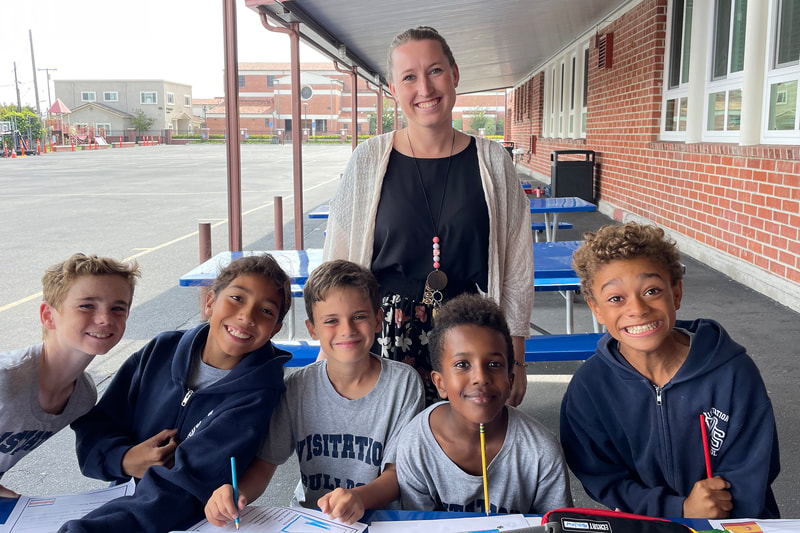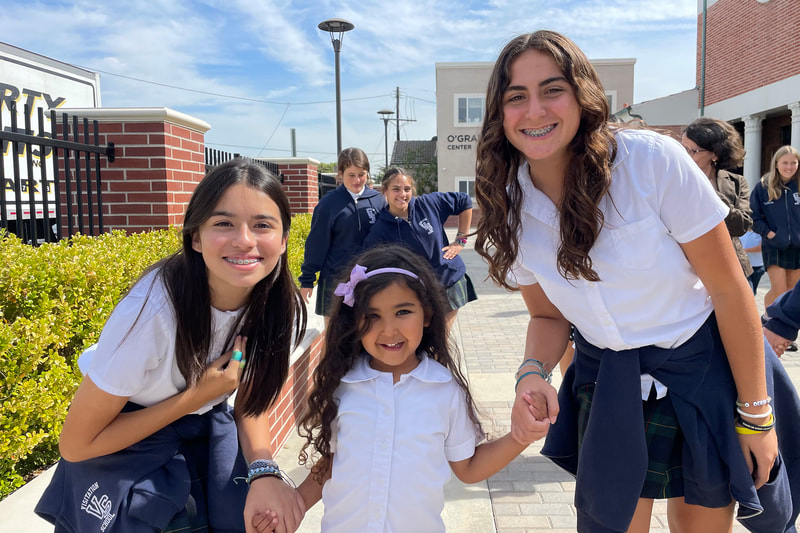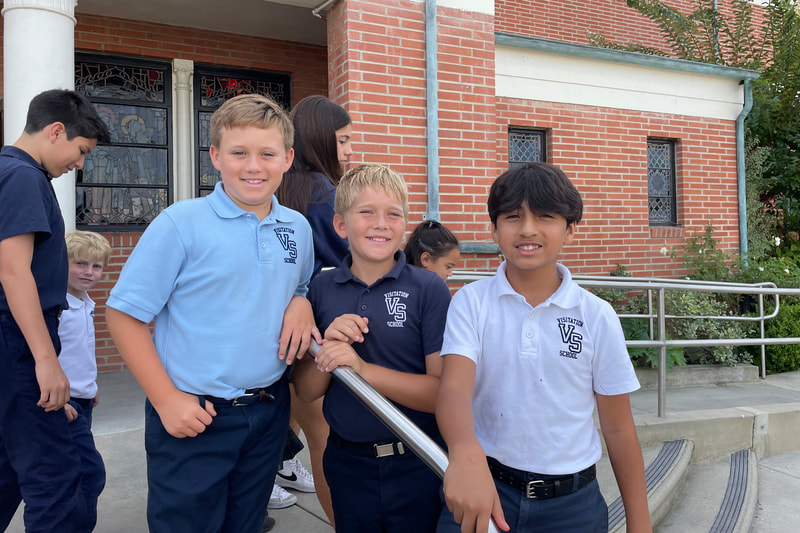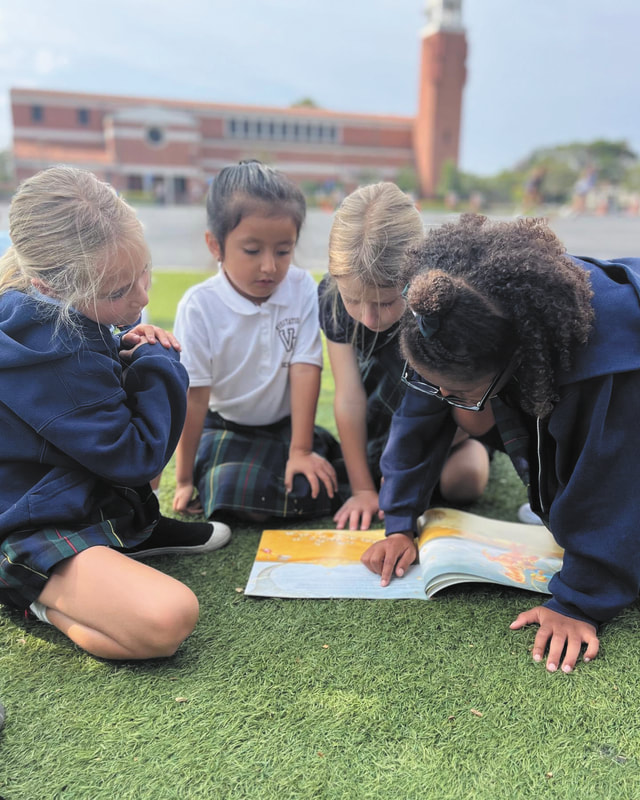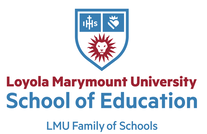Mission & Philosophy
Visitation School is a co-ed, Catholic Elementary School for students in Junior Kindergarten through 8th grade. We have been providing a quality Catholic education for students since 1947.
Our Mission Statement is to provide our students with a Catholic education in a Christ-centered and child-centered environment where Christ is the reason for our existence, the model of our faculty, and the inspiration of our students.
The purpose of Visitation Catholic School is to focus on the basic truth that the aim of Catholic education is the education of the whole child. The faculty believes that each child is endowed by God with special talents and gifts, and that it is the duty of each educator to help the child discover and develop these gifts.
In the school's Faith Community, many people are working together: priests, parents, teachers, students and the entire parish community. It is recognized that "Parents must be acknowledged as the first and foremost educators of their children" (1 Document of Vatican II). The faculty, therefore, works in partnership with the parents in pursuit of the school's goal.
The faculty adheres to the three-fold purpose of Catholic education by the teaching of doctrine, the building and experiencing of community of being of service to others. The faculty believes that students must have instruction in this knowledge and be directed to contribute to the Faith Community, looking to Christ as the center of all that is of value in this life and in the next.
Our Mission Statement is to provide our students with a Catholic education in a Christ-centered and child-centered environment where Christ is the reason for our existence, the model of our faculty, and the inspiration of our students.
The purpose of Visitation Catholic School is to focus on the basic truth that the aim of Catholic education is the education of the whole child. The faculty believes that each child is endowed by God with special talents and gifts, and that it is the duty of each educator to help the child discover and develop these gifts.
In the school's Faith Community, many people are working together: priests, parents, teachers, students and the entire parish community. It is recognized that "Parents must be acknowledged as the first and foremost educators of their children" (1 Document of Vatican II). The faculty, therefore, works in partnership with the parents in pursuit of the school's goal.
The faculty adheres to the three-fold purpose of Catholic education by the teaching of doctrine, the building and experiencing of community of being of service to others. The faculty believes that students must have instruction in this knowledge and be directed to contribute to the Faith Community, looking to Christ as the center of all that is of value in this life and in the next.
Visitation Catholic School's Goals
Religious Education Goals
Aware of the responsibility of being Catholic educators, the faculty is responsible to God for the spiritual well-being of students entrusted to our care. The faculty aspires to:
- instill among members of the school community lasting spiritual and moral values,
- guide students toward an awareness of the beauty of God's graces,
- prepare students to become responsible Christians,
- lead students toward the building of a Christian Community of Faith, based on the realization that Christ lives within each person.
Intellectual Goals
Realizing that the intellect is a gift of God, through the academic program, the faculty endeavors to:
- bring each student to the knowledge that he/she must grow in order to find his/her place and to sustain himself/herself in the changing world of today,
- provide a climate wherein each child may grow creatively, according to his/her own unique skills, and
- instill a foundation of academic excellence in such a way that will enable the student to meet with success in secondary education as well as participation in continuing education.
Social Goals
Since all humankind exists in community, the faculty endeavors to:
- assist the student to recognize the worth of all peoples, thus appreciating and accepting individual differences in cultural, economic, and religious backgrounds,
- encourage the student to share with the less fortunate, thereby becoming more aware and open to the needs of others, and
- help the student gain self-awareness and develop as a responsible Christian in daily interactions with others.
Physical Goals
Recognizing the various pressures on students today, and in order to provide for their physical needs and general good health, the faculty endeavors to:
- provide regular classes of Physical Education,
- foster a healthy attitude of competition,
- respect the uniqueness of each one's physical ability, and
- foster a respect and care for one's body.
Emotional and Psychological Goals
Cognizant of the fact that educators must attend to the emotional and psychological needs of the students, the faculty aspires to:
- create a climate, enabling students to reach their full potential,
- provide psychological and emotional assistance for the students in need, and
- guide students to take responsibility for their own behavior.
Aware of the responsibility of being Catholic educators, the faculty is responsible to God for the spiritual well-being of students entrusted to our care. The faculty aspires to:
- instill among members of the school community lasting spiritual and moral values,
- guide students toward an awareness of the beauty of God's graces,
- prepare students to become responsible Christians,
- lead students toward the building of a Christian Community of Faith, based on the realization that Christ lives within each person.
Intellectual Goals
Realizing that the intellect is a gift of God, through the academic program, the faculty endeavors to:
- bring each student to the knowledge that he/she must grow in order to find his/her place and to sustain himself/herself in the changing world of today,
- provide a climate wherein each child may grow creatively, according to his/her own unique skills, and
- instill a foundation of academic excellence in such a way that will enable the student to meet with success in secondary education as well as participation in continuing education.
Social Goals
Since all humankind exists in community, the faculty endeavors to:
- assist the student to recognize the worth of all peoples, thus appreciating and accepting individual differences in cultural, economic, and religious backgrounds,
- encourage the student to share with the less fortunate, thereby becoming more aware and open to the needs of others, and
- help the student gain self-awareness and develop as a responsible Christian in daily interactions with others.
Physical Goals
Recognizing the various pressures on students today, and in order to provide for their physical needs and general good health, the faculty endeavors to:
- provide regular classes of Physical Education,
- foster a healthy attitude of competition,
- respect the uniqueness of each one's physical ability, and
- foster a respect and care for one's body.
Emotional and Psychological Goals
Cognizant of the fact that educators must attend to the emotional and psychological needs of the students, the faculty aspires to:
- create a climate, enabling students to reach their full potential,
- provide psychological and emotional assistance for the students in need, and
- guide students to take responsibility for their own behavior.

